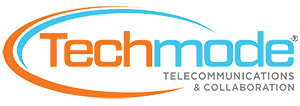The Hidden Cost of UCaaS to MSPs
Many Managed Service Providers (MSPs) view Unified Communications as a Service (UCaaS) as a “necessary evil” rather than a core offering. According to recent industry surveys, most MSPs hesitate to add cloud communications to their portfolio despite recognizing its strategic importance for growth and customer retention.
Telecom services might not excite every MSP. For those focused on cybersecurity, infrastructure management, or cloud migration, phone systems can seem like an unwelcome distraction. However, avoiding UCaaS creates significant business vulnerabilities that smart MSPs are learning to address.
The Common Objections: Why MSPs Avoid UCaaS
Margin concerns top the list of hesitations. Many MSPs look at UCaaS pricing and assume there isn’t much profit left after vendor costs compared to higher-margin services like cybersecurity or managed desktop solutions.
Support complexity represents another major hurdle. Voice communication is unforgiving—when calls sound bad, customers get angry quickly. Troubleshooting jitter, packet loss, and Quality of Service (QoS) issues can be daunting for MSPs without telecom expertise.
Fear of vendor relationships also plays a role. Some MSPs have been burned by telco carriers or big UCaaS brands that undercut them or poached their customers directly. This creates lasting hesitation about entering the space again.
Regulatory compliance poses significant challenges for unprepared MSPs. The telecommunications industry faces stringent FCC requirements including STIR/SHAKEN call authentication protocols to combat spoofing, comprehensive robocall mitigation plans, and 10DLC (10-Digit Long Code) registration for business messaging. These regulations require specialized knowledge and ongoing attention to avoid substantial penalties and service disruptions.
Technical challenges cannot be overlooked. UCaaS involves integrating voice, video, and messaging, which requires significant expertise. Seamlessly connecting these tools with a client’s existing applications like CRM and ERP systems demands specialized knowledge that many MSPs don’t have in-house.
Billing complexities create another barrier. Telecom billing is notoriously more complex than standard IT service billing, causing delays, errors, and compliance risks when MSPs try to integrate it with their existing accounting systems.
Why That’s a Problem: The Hidden Risk of Not Offering UCaaS
Customer expectations have evolved. Businesses increasingly want to consolidate vendors, preferring a single provider for IT, security, internet connectivity, and phones. When an MSP doesn’t provide UCaaS, they create an opening for competitors.
Protection of existing relationships becomes a concern. As one industry assessment bluntly puts it: “If you don’t offer it, someone else will – and they won’t stop there.” Once another provider gains a foothold with telecom services, they’re positioned to expand into the MSP’s core offerings.
Missed opportunities for higher-margin services are common. UCaaS often leads to additional revenue streams through AI integrations, contact center solutions, compliance recording, and analytics. By skipping UCaaS, MSPs close the door on these profitable add-ons.
Recurring revenue stability is another overlooked benefit. Phone systems are notably “sticky” services—once a business moves its communications infrastructure and configures call flows, it’s unlikely to switch providers quickly. This creates predictable, long-term revenue.

The Bridge: How MSPs Can Successfully Enter UCaaS
Partner programs offer the most promising approach. This model allows MSPs to offer branded UC services without significant infrastructure investment or telecom expertise.
Higher margins become possible with the right partner. While traditional agent models might yield only 10-20% commission, strategic partnerships can deliver 50-75% margins or higher. With Techmode’s partner program, MSPs reported average margins of 40% in 2024—significantly higher than many competitors offering 15-22% commission rates.
Flexible engagement models remove barriers to entry. Techmode’s partner program, for example, allows MSPs to choose their level of involvement: “Interested in doing installs and Tier 1 support for your clients? Perfect! Not interested in support, just looking to sell? Also perfect!”
Dedicated expertise fills knowledge gaps. Quality UCaaS partners provide subject matter experts who can join sales calls and demonstrations, eliminating the need for MSPs to become telecom specialists themselves.
What to Look for in a UCaaS Partner
Channel-first focus is essential. Some UCaaS providers sell direct MSP services and compete with their partners—a major red flag. Reliable partners should only sell UCaaS and CCaaS services with no overlap with your offerings.
Support quality makes or breaks the experience. Look for U.S.-based support teams with short SLAs and direct escalation paths. Techmode emphasizes this with their “Concierge Services” featuring 24/7 support from U.S.-based technicians who handle everything from password resets to complex system changes.
Infrastructure reliability directly impacts customer satisfaction. Partners should offer strong uptime guarantees and redundant systems. The TechmodeGO platform, for example, provides four layers of redundancy through private AWS instances with 99.999%+ uptime guarantees.
Transparent pricing prevents future conflicts. The best partners offer clear margins without hidden fees or unexpected add-ons. This simplifies the MSP’s own pricing structure and helps maintain customer trust.
Selecting the Right Partner Matters
When evaluating UCaaS for MSPs, consider these factors:
1. Private vs. shared infrastructure: Techmode deploys each client on a dedicated AWS instance with unique server IPs and custom web addresses, providing better security and isolation compared to multitenant platforms.
2. Implementation approach: Comprehensive onboarding services like Techmode’s Premier Launch experience include deep-dive discovery, network assessment, and pre-configuration before shipping.
3. Integration capabilities: Ensure the platform connects seamlessly with Microsoft Teams, Office 365, and popular CRM systems to maximize value for your clients.
4. Proven customer satisfaction: Techmode maintains a Net Promoter Score of 85 (well above the industry average of 36) and an A+ BBB rating, indicating strong service delivery.
5. Partner program structure: Look for tiered programs that reward growth. Techmode offers Silver, Gold, and Platinum partner tiers with increasing benefits based on annual UCaaS sales performance.
The Bottom Line
Adding UCaaS for MSPs to the service stack isn’t just about selling phone systems—it’s about protecting existing client relationships while opening doors to new revenue streams. With the right partner, MSPs can overcome traditional barriers of expertise, support, and margin concerns.
For MSPs looking to expand their offerings, the decision comes down to a simple reality: either own the communications stack or watch as someone else does—potentially threatening your entire client relationship in the process.
Frequently Asked Questions
Q: How much revenue can an MSP expect to generate from UCaaS offerings?
A: With the right partner, MSPs can generate an estimated $75-$100 profit per seat annually. For example, 1,000 seats can deliver approximately $87,000 of recurring profit each year.
Q: Do MSPs need specialized telecom expertise to offer UCaaS?
A: No. Quality UCaaS partners provide subject matter experts who can assist during sales calls and demonstrations, eliminating the need for MSPs to become telecom specialists themselves.
Q: How quickly can MSPs begin offering UCaaS to their clients?
A: With the right partner like Techmode, MSPs can launch UCaaS offerings rapidly. The onboarding process typically includes partner training, access to marketing materials, and a dedicated channel manager to assist with initial deployments, allowing MSPs to start generating recurring revenue within weeks rather than months.
Q: How does UCaaS for MSPs help retain existing clients?
A: Phone systems are notably “sticky” services—once a business configures its communications infrastructure, it’s unlikely to switch providers quickly. This creates a defensive barrier against competitors trying to acquire your clients.
Q: What integrations should MSPs look for in a UCaaS solution?
A: Look for platforms that offer native integrations with Microsoft Teams, Office 365, popular CRM systems, and support for features like SMS/MMS, web chat, and video conferencing to maximize value for clients.











